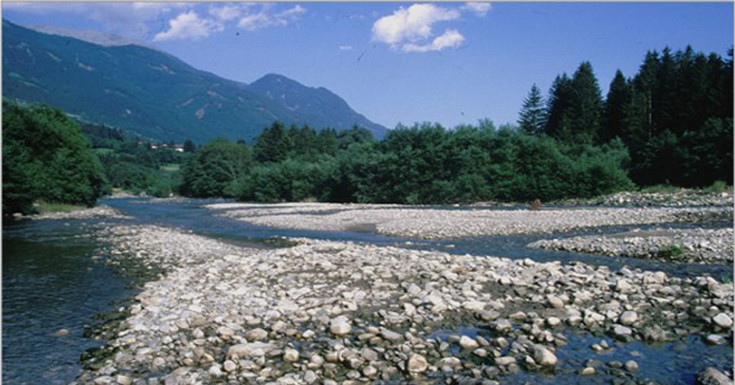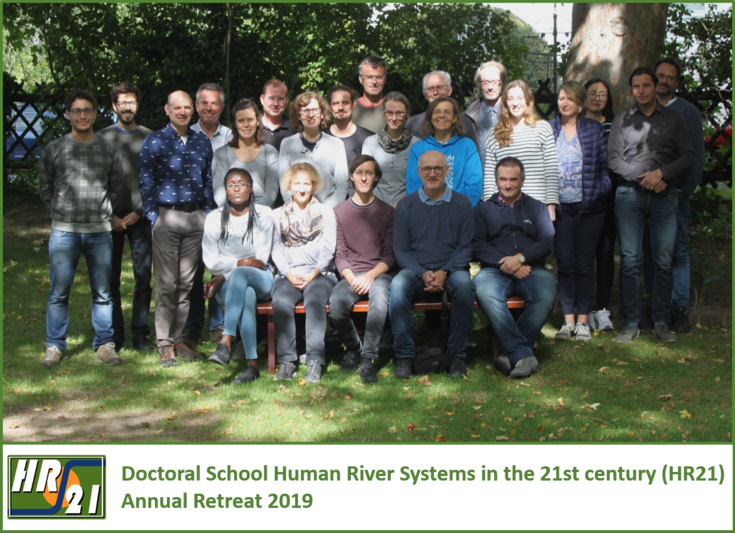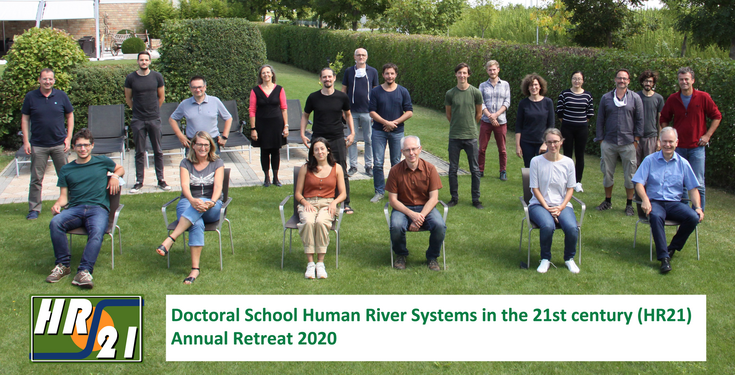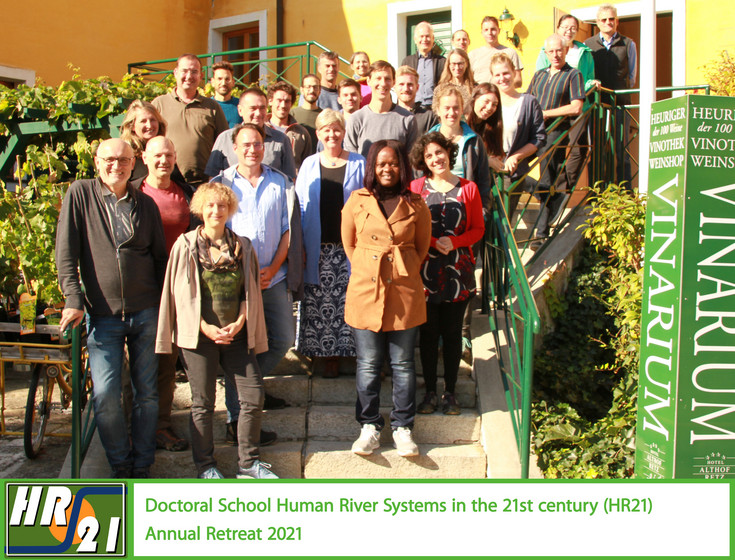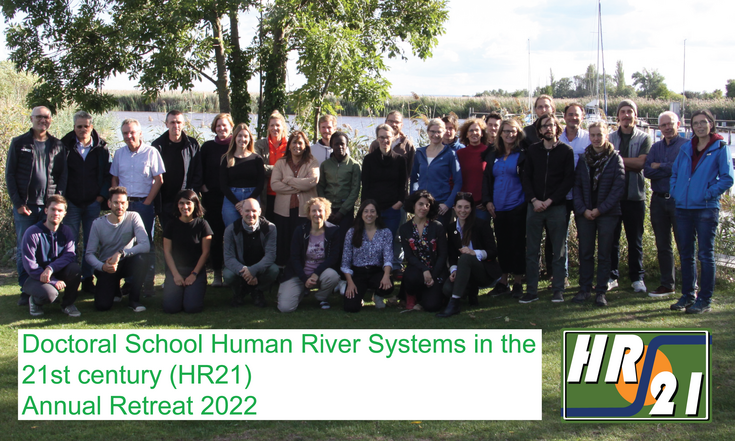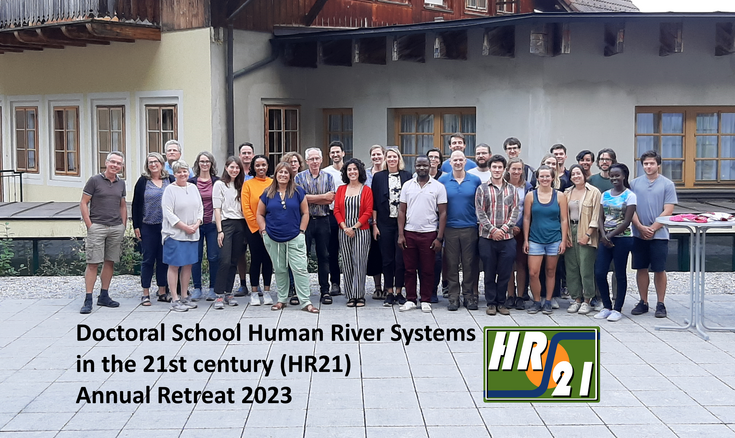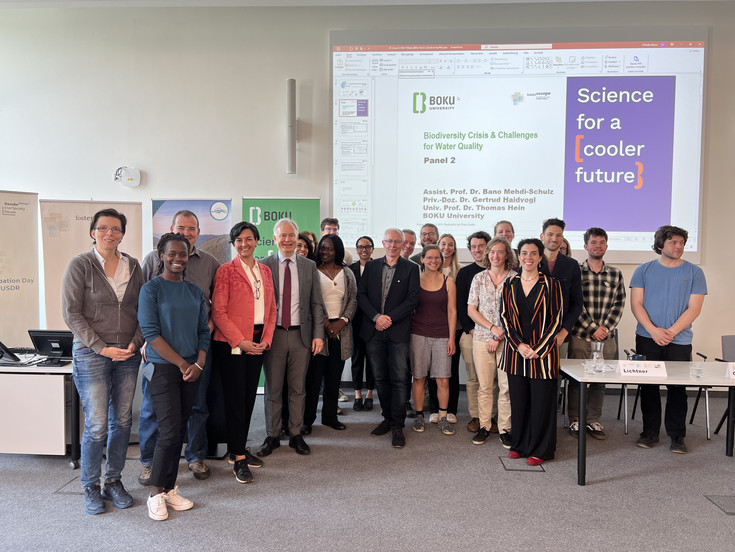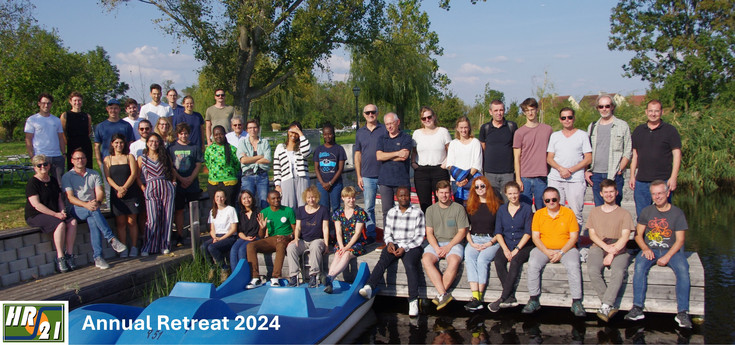Human River Systems in the 21st century (HR21)
Most Rivers on Earth are now HUMAN RIVER Systems (HR), shaped by natural processes and human intervention. As industrialized riverine landscapes (IRL) they are key for the water-food-energy nexus. They face critical challenges, which call for an interdisciplinary approach to analyse causes and directions of ongoing and future transformations, and to provide solutions for sustainable development. HR21 builds on the research framework of its predecessor; it rests on the concept of “coupled socio-ecohydrological systems” (CSEHS) to analyse HR in a rapidly changing world.
Within its interdisciplinary, combined approach of research and education, the Doctoral School Human River Systems in the 21st Century (HR21) studies the coupled socio-ecohydrological evolution of HR, also asking how HR react to future environmental, social, cultural and economic drivers of change like climate change, disaster management, demographic change or land use change.
The conceptual approach of HR21 is based on the analytical distinction between natural/ecological and socio-cultural systems, which we see coupled by co-evolution. CSEHS combine aspects of three research domains (i) natural sciences, (ii) engineering, and (iii) social science and socio-economic research. Riverine landscapes encompass hydrological and biogeochemical cycles, hydro- and morphodynamics, biodiversity and ecosystem functions; together they form the metabolism of the natural system. The social system can also be viewed in terms of metabolism, encompassing spatial and sociocultural aspects, e.g. resource extraction (water and sediment), energy generation, waterways, land-use of the catchment, and wastewater disposal. Transformation processes in HR are the result of coupled natural processes and the societal exploitation of river systems, and understanding the coupling is the main target of HR21.
HR21 trains a new generation of experts and provides scientific evidence base for adaptive management resulting in HR as self-sustaining, resilient and less vulnerable systems. The Doctoral School perfectly embodies the visions of the University of Natural Resources and Life Sciences Vienna (BOKU) as a leading university for sustainability in Europe.
Hein et al. 2024 -
Hein et al. 2021 - https://doi.org/10.1016/j.scitotenv.2021.149619
Scientific mission and vision of HR21 Published articles about the HR21 scientific concept
- Establish an interdisciplinary doctoral school linking all disciplinary domains
- Establish a vibrant, international and stimulating environment for PhD students in the doctoral school
- Establish an international visible centre for IRL research
- Address current knowledge gaps and future societal challenges
- Increase internationalization and international visibility of the research in that respective field
- Join forces in acquisition of highly innovative, interdisciplinary research projects
- More cooperative use of high end infrastructure and expertise in the field of interdisciplinary river science
Published articles about the HR21 scientific concept
Hein et al. 2024 - https://doi.org/10.1007/s00506-024-01055-2
Hein et al. 2021 - https://doi.org/10.1016/j.scitotenv.2021.149619

